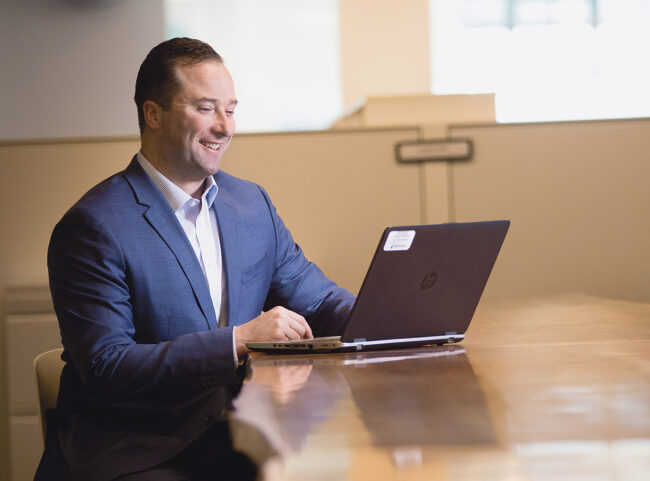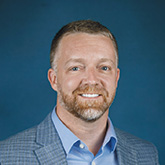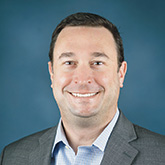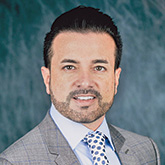HealthTrust provides members with the expertise to boost end-user satisfaction & reduce expenses
When it comes to HealthTrust’s medical device management (MDM) solutions, success is measured in patient satisfaction, physician satisfaction and, of course, cost savings. The team provides solutions in consulting, analytics and custom contracting. They review the technologies to determine if any differentiators or clinical evidence exists to support better outcomes. And they help members obtain the best pricing in medical devices by negotiating contracts, navigating issues, monitoring market trends and engaging physicians in decision-making.

Rusty Parker, Senior Director of Corporate Supply Chain at Methodist Le Bonheur Healthcare in Memphis, Tennessee, has partnered with HealthTrust’s MDM team since 2013. “Working with HealthTrust gives us great insight into what’s going on with the industry,” says Parker. He doesn’t have the luxury of having experts in orthopedics, spine or cardiology on staff, but, luckily, HealthTrust does. “MDM team members have spent part of their careers on the supplier side and regularly attend trade shows, so they’re up to speed on the latest iterations. When we are approached by a device company, we ask the HealthTrust experts what they think, and it gives us reassurance that we’re doing the right thing.”
Leveraging negotiations
“When it comes to medical device management, pricing is always an issue,” explains Parker. “Invariably, we’re trying to get the best quality at the lowest price. It’s hard to know what’s going on in the industry outside of our little bubble.” An organization may think it’s getting optimal pricing on a new medical device, yet it could be leaving some money on the table. HealthTrust helps by providing guidance on pricing and restructuring an agreement to achieve better value.

“We are taking a look at all the factors—physician alignment, market share, total spend, regional considerations—and creating a custom strategy to maximize spend and get the lowest possible price,” says Jimmy Yancey, AVP, Medical Device Management, HealthTrust. Custom contracting is specifically for physician preference items, which include high-value implants for total hips and knees, spine hardware and osteobiologics, drug-eluting stents and cardiac rhythm management.
Methodist Le Bonheur has worked with HealthTrust’s MDM team on three contract renegotiation cycles for cardiac rhythm management products and drug-eluting stents. “We’ve experienced seven-figure savings,” Parker shares. “Each time we thought we couldn’t do any better, yet three years later, we achieved additional savings.”
As Parker and his team are constantly receiving information from suppliers about new cardiac products, it’s hard for them to know what’s needed and what’s not. HealthTrust provides an unbiased perspective and brings credibility to the negotiating table, and in between contracts, making sure to add products at the right time. “I was a supplier for 14 years before joining HealthTrust. That background enables me and others on the team with similar experience to prevent the hospitals we work with from being upsold on the latest and greatest technology unless it’s at an appropriate price,” explains Yancey.
Becoming a part of the supply chain team
Many members view HealthTrust as a partner—one that provides guidance and resources, from analytics and dashboards to subject matter expertise.
The HealthTrust MDM team can speak to fair market value since it aggregates all the device makes and models and negotiates contracts multiple times a year. Comparatively, a member hospital may only negotiate custom contracts once every three to four years. “Everyone knows that when negotiating, additional commitments bring better price concessions from suppliers. Our clinical subject matter experts can help members identify clinically equivalent products and drive compliance toward better pricing.
The scope of our market intelligence ensures that members get the best possible pricing with vendor consolidation,” adds Yancey.
HealthTrust also has Physician Advisor experts who have performed thousands of surgical cases to help classify the devices. This allows the MDM team to maximize savings on new products.

“Medical devices account for roughly 25% of a health system’s spend,” says John Humphrey, Senior Director, Medical Device Management, HealthTrust. “By working with our consulting and analytics teams, we can help hospitals increase overall profitability.”
The team can also facilitate communications with physicians and track how devices are being used. “Our medical device industry experience enables a level of understanding of how these devices are marketed, and we can speak to some of the differences between them,” says. Humphrey. “After pricing, we look at the utilization of medical devices and help track and maintain savings through customized dashboards.”
With a master database of thousands of products, the team receives de-identified procedural data for analysis and monitors the cost of cases over time to minimize unnecessary use variation as well as reduce costs.
Scaling data

The Strategic Sourcing team at HealthTrust sources medical devices and designs contracts to provide value from the perspective of a national portfolio of products. “We work to negotiate the cost of goods and serve as the mechanism for how our members obtain physician preference products,” says Cyrus Hadjesmaili, AVP of Sourcing, HealthTrust. The National Portfolio team collects and analyzes utilization data on all the medical devices that members purchase. That is then leveraged for the larger membership to achieve optimal pricing and terms and conditions to provide value within those categories.
“We’re not only negotiating the products, but we’re also digging into clinical insights, outcomes and trends leading up to and during the negotiations. We also share with suppliers feedback from our member customers,” Hadjesmaili adds. The HealthTrust Clinical Advisory Boards are an important piece of the strategic sourcing process. They serve as a group of subject matter experts who vet new technology, share market intelligence and utilization patterns, and validate clinical outcomes to ensure a clinically efficacious decision is being made on behalf of the membership. Strategic Sourcing engages with HealthTrust account managers and directly with the end users by way of the Clinical Advisory Boards or the Advisor online platform to understand what’s working and what’s not, and what needs to be adjusted within an agreement’s structure to make it more effective.
Engaging physicians
“Engagement with physicians at Methodist Le Bonheur is essential to accomplishing our goals,” says Parker. “We take our physicians’ input and guidance back to the HealthTrust Medical Device Management team to zone in on the best quality product at the best price for our physicians.”
The experts will tell you that it’s a no-brainer: The higher the physician engagement, the higher the savings. “We’ve seen small hospitals get best-in-class pricing because the physicians are aligned and educated on what the market value is for the products they are utilizing, so they can participate in negotiations in a positive manner,” says Yancey. Humphrey agrees. “If physicians aren’t involved, a health system won’t be able to move the needle much,” he adds. On the other hand, health systems with surgeons leading the effort can achieve their goals.
HealthTrust can help engage physicians and navigate questions during the contracting process and throughout the life of the contract. “Where we add value is knowing the products and helping to provide information on comparable products that can help get physicians on board and increase the savings opportunities,” explains Humphrey.
Doctors who are part of HealthTrust’s Physician Advisor program provide insights on product categories as well. “We can tap into special teams of physicians from different markets and use their feedback to help members navigate their own clinical conversations within their facilities,” says Hadjesmaili. “Oftentimes someone else has a solution to the problem, and we share that solution with other members to help them have informed conversations and, ultimately, save money.”
Understanding trends & technologies
Robotics is by far the most significant area of growth in the device marketplace. (See A Vital Balancing Act for more on the latest innovative medical devices.) Surgical robotic systems are becoming more widely accepted, with new surgeons now coming out of their residencies having been trained on them.
When committing to a high-cost robot, there are often a number of savings opportunities, including the surgical system itself and the implants, screws and other components. “Because of HealthTrust’s market intelligence, when a member is purchasing a robot, we can negotiate the implant costs in conjunction with a robotic purchase,” says Yancey.
As surgery becomes less invasive, patients and many physicians prefer surgery centers over hospitals—a change accelerated by COVID. Though they aren’t equipped for trauma or acute cases, surgery centers are ideal for otherwise-healthy patients in need of spine or joint surgery. Changes in Medicare reimbursement for hip and knee procedures have also made surgery centers more attractive. Suppliers are updating applications to their clinical products to facilitate this shift. “We are seeing movement to solutions that simplify procedures and take the variation out of them, so you have more predictable outcomes through the use of technology,” says Hadjesmaili. His group works to stay ahead of these changes and ensure contracts remain relevant.
One of the key issues members face is understanding new technologies on the market. Products may not be truly new, and there is no context given to the overall effect a new technology may have on the standard of care or financing.
“Everyone is eager to have a better mousetrap, so it’s hard for a hospital to keep track of the latest and greatest in medical devices,” says Parker. “It’s nice to have HealthTrust as a source of truth. We ask the team things like: ‘Is this really what we should be using? This pacemaker version has Bluetooth. Do we really need that?’ ”
The MDM team knows how to address these issues and provides members with ongoing intelligence on evolving products. Humphrey shares, “We are narrowly focused and extremely deep in each person’s area of expertise, based upon our supplier-side experience. The hospital members we work with are dealing with everything across the board.” Members can also collaborate with other HealthTrust members and learn from one another through online forums.
“I can’t say enough about the team,” adds Parker. “The engagement and success achieved through this partnership has given our organization the resources needed to respond to an ever-changing market.”
Explore how to unlock savings—contact the MDM team at corp.medicaldevicemgmt@healthtrustpg.com.
Share Email Custom Sourcing, inSight Advisory, Medical Devices, Q2 2022




